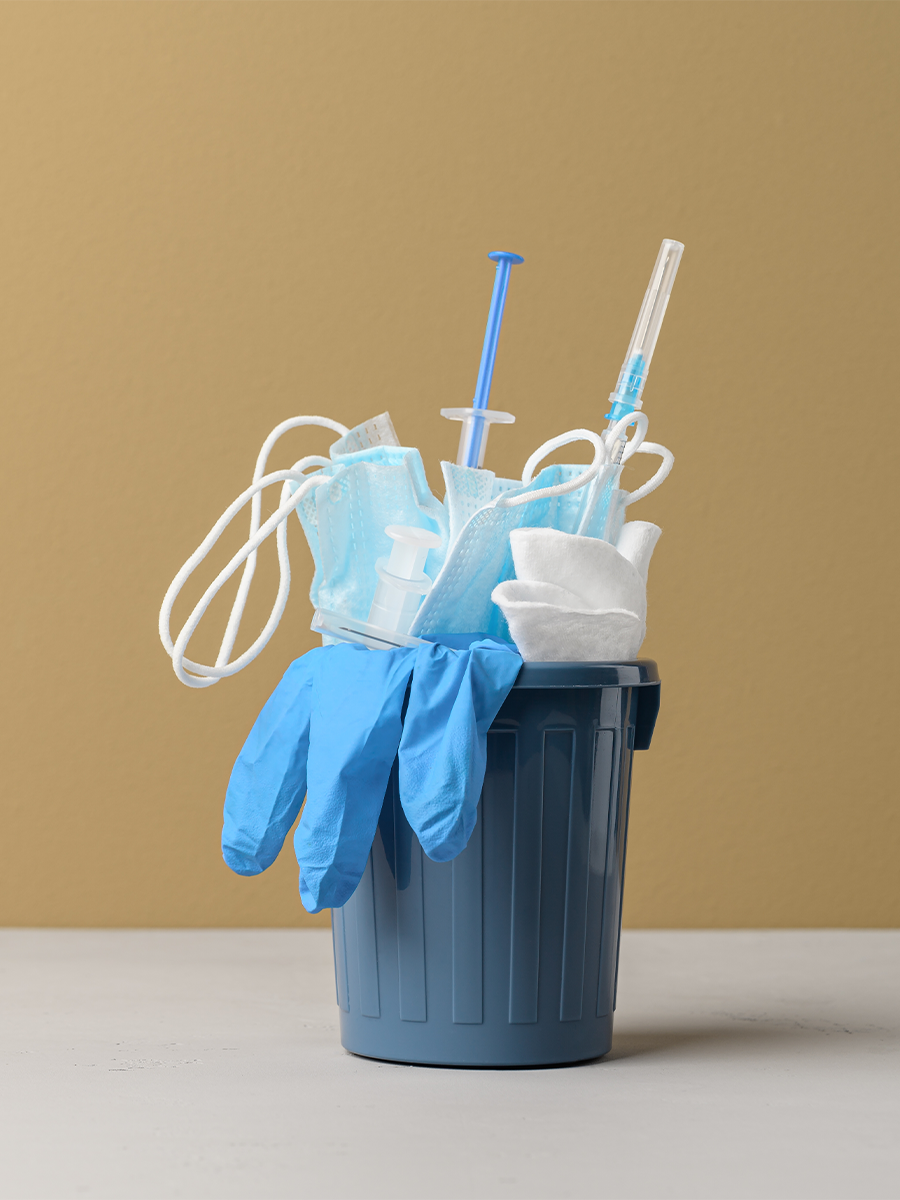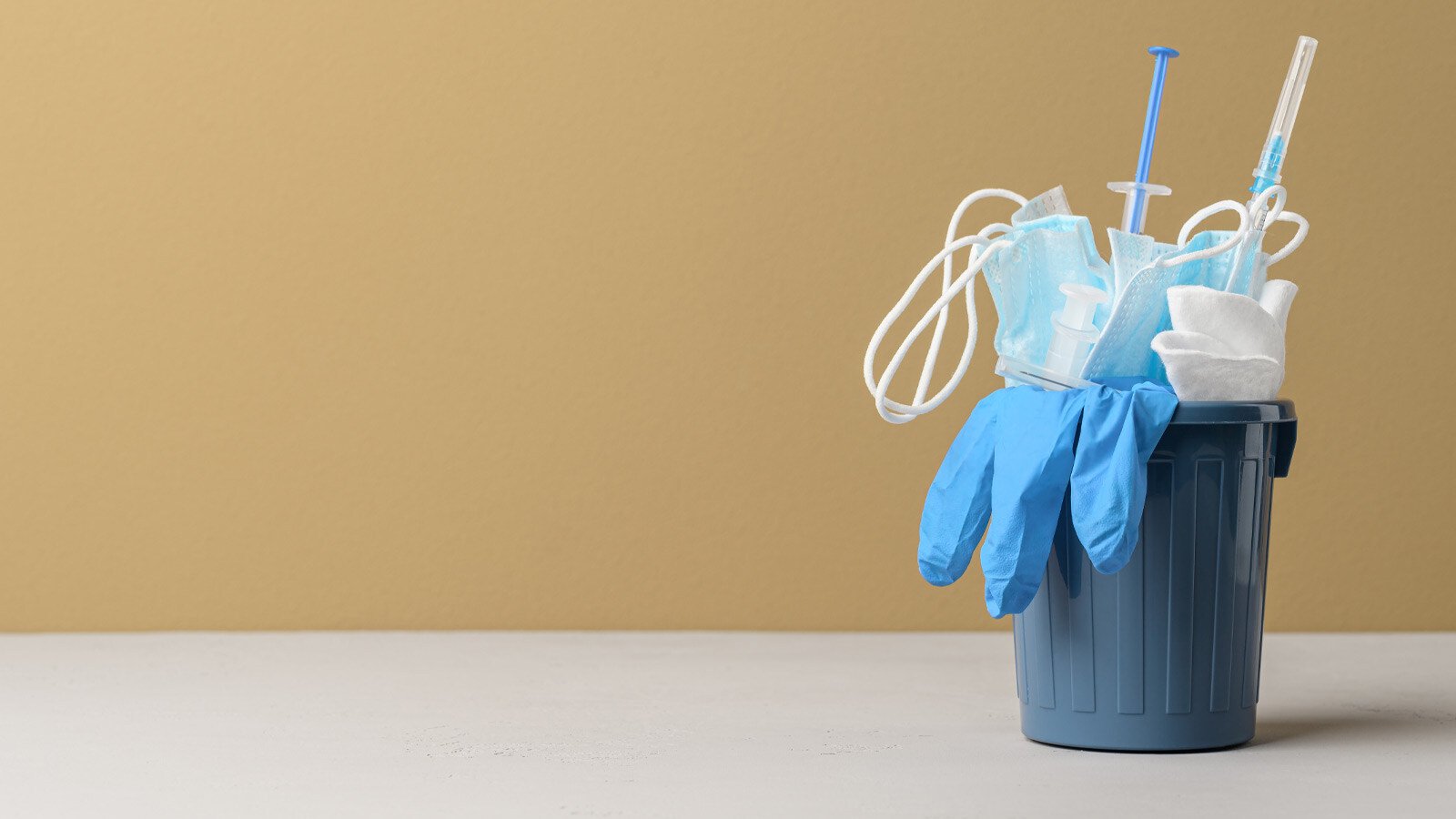Medical waste includes waste generated during the diagnosis, treatment or immunization of humans and animals. Medical waste often contains substances that may pose a risk to health and the environment. Therefore, the management of medical waste requires specific attention and care.
What belongs under what doesn't?
Medical waste is not just any waste. It is distinguished by its potentially hazardous properties. What exactly is medical waste and what is not?
Medical waste includes:
- Used needles and syringes
Blood and body fluids
Contaminated gloves and bandages
Chemical waste from laboratories
Pathological waste such as organs and tissue
What is not included in medical waste:
- General household waste
Paper and cardboard
Food scraps unless contaminated
Plastic packaging without contamination
What are the subcategories?
Medical waste can be divided into several subcategories. Each type of waste requires a specific approach and treatment method.
Subcategories of medical waste are:
- Infectious waste: waste that can transmit disease, such as blood.
- Pathological waste: body parts and tissue, often from operations.
- Chemical waste: substances such as disinfectants and medicines.
- Radioactive waste: waste containing radioactive materials used in certain treatments such as radiation.
- Non-infectious waste: medical waste that poses no risk of infection, such as plaster.
- Specific hospital waste (SZA): waste from hospitals and healthcare facilities, such as contaminated materials and sharps
Specific hospital waste (SZA).
Specific hospital waste (MSW) is an important subcategory within medical waste. This includes contaminated bandages, gloves, disposable clothing and sharps such as needles. This waste comes from hospitals, nursing homes with medical facilities, general practitioners, veterinarians, dental practices and laboratories. The processing of specific hospital waste is a specialized process involving medical incinerators. Prior to the treatment process, strict separation and labeling allows hospitals to dispose of the waste in a safe and responsible manner.
What are the requirements for medical waste and special hospital waste?
The management and disposal of medical waste require strict compliance with rules and guidelines. These rules ensure personnel safety and environmental protection.
Important requirements are:
- Separation of waste at source
- Use of appropriate containers and packaging
- Proper labeling of waste
- Training of personnel in waste management
- Regular monitoring and auditing of waste management processes
What legislation does medical waste fall under?
Medical waste is subject to strict laws. These laws ensure that waste is properly managed to minimize risks.
In the Netherlands, medical waste regulations fall under:
- Environmental Management Act: rules for hazardous waste management.
- Working Conditions Act: protects workers from the risks of medical waste.
- Medical Waste Management Decree: specific rules for the processing and storage of medical waste.
Sustainability and medical waste treatment
Sustainability is an increasingly important issue within the healthcare industry. Medical and special hospital waste management plays an important role in this.
Recent innovations within the sector offer new opportunities for sustainable medical waste management. For example, there is a company that can decontaminate medical waste and special hospital waste, thus enabling the safe recycling of medical waste.
Green Deal Sustainable Care
Waste management is an important aspect of sustainable healthcare. By complying with guidelines and implementing sustainable practices, healthcare facilities can contribute to a safer and healthier world, as also included in the Sustainable Healthcare Green Deal.

Want to know more?
Want to know more about the innovative possibilities of medical waste and special hospital waste recycling? Contact Milgro for a no-obligation introductory appointment. Milgro specializes in sustainable waste management and can advise you on the best practices for your organization or facility.
Stay informed
Stay up to date on all new developments? Follow us on LinkedIn or Instagram. Or subscribe to the newsletter. Are you curious about what Milgro can do for your operations and waste process? Contact us















